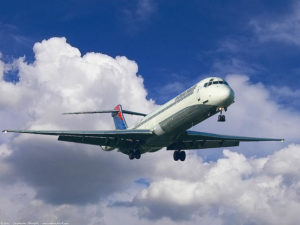Many people are afraid to fly, and even some of us who fly often may get nervous from time to time when stepping onto an airplane. We can help you to over come your fear of flying. Please call us today to set up an appointment 724-934-8446
Flying is not easy these days, especially so for those living with a paralyzing fear of the skies. But you don’t have to let your fear of flying ground you, because there is a way to remedy anxiety caused by flying.
Tom Bunn has thoughts on causes a fear of flying and how to regulate it. Bunn is a pilot who has flown in the military and for commercial airlines. Bunn is a licensed therapist and is the founder of SOAR, a program that has helped more than 5,000 individuals get over their fear of flying.
Many people have a fear of flying because of an increase in stress and their inability to get off the plane once it’s in the air.
“There’s a part of the brain that releases stress hormones anytime we’re faced with uncertainty and that happens for everybody,” Bunn says. “Some people process the stress hormone unconsciously and when they’re processed unconsciously very efficiently, it’s like water running off a duck’s back.”
However, people who don’t have that kind of automatic regulation are forced to address the issue consciously.
“That’s where the problem lies because on the airplane when you get stress hormones you can’t be quite sure what’s going on and you can’t take any action and you can’t escape,” Bunn says. “So for people who don’t regulate automatically, flying is pretty bad.”
The root of the issue
According to Bunn, the first 14 to 18 months of someone’s life is when the system of emotional regulation is built-in. If it is done correctly, there won’t be any anxiety problems. However, an individual that has to regulate consciously usually likes to be in control, which becomes a problem.
“The plane doesn’t let you control things,” Bunn says. “I think the personality type grows out of the fact that we either do, or don’t, get that early development of automatic regulation.”
In order to help someone overcome their fear, their automatic regulation has to be built.
“We look, in your adult life, when someone was truly attuned to you,” Bunn says. “When someone was truly attuned to you — just there for you — even if their stress hormones are present, your heart rate goes down to normal and your parasympathetic nervous system, which is a global calming system, is activated.”
Some fliers self-medicate in an attempt to ease their anxiety but this isn’t a solution, according to Bunn. Anxiety and stress over flying will often stay present even after a person has self-medicated.
“There is some issue on the use of benzodiazepines such as Xanax; as long as you’re taking them you don’t get any better at getting used to flying,” Bunn says.
Don’t miss out
Quality of life is often what drives people to seek help for their fear. Whether they’re being held back in their career, putting limits on distances traveled, or avoiding flying altogether – most of the people who end up visiting Bunn want to live their life to the fullest.
“They look and say ‘I missed out on something where I could have been doing much better in my career if I had been flying. I’m not going to do that again,’” Bunn says.
